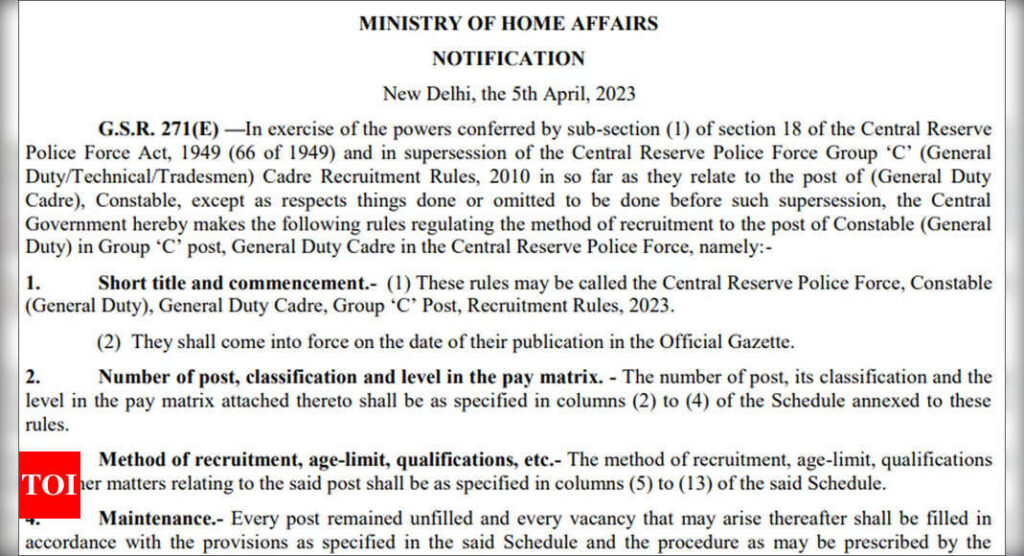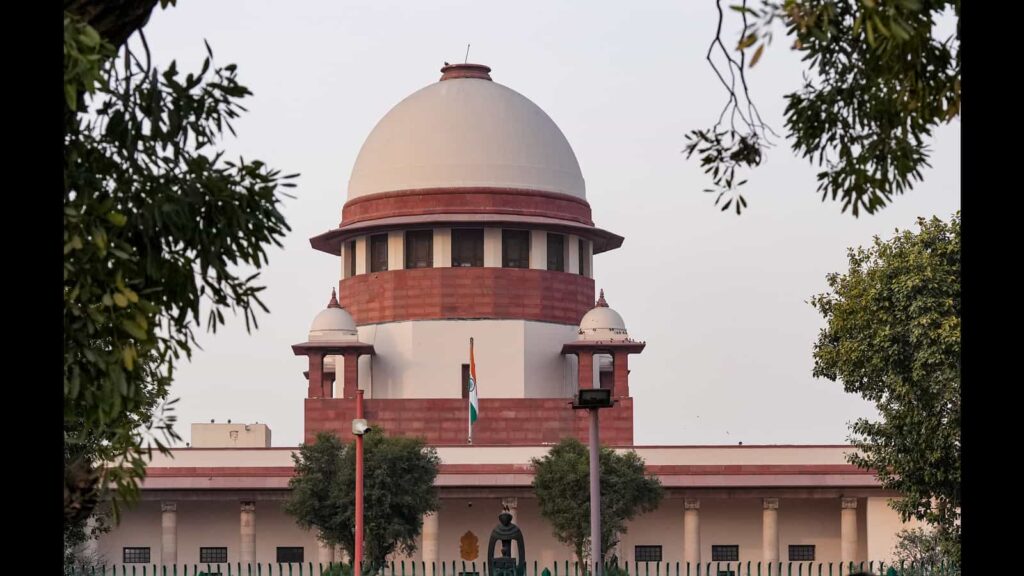NEW DELHI: On Thursday, the Ministry of Home Affairs released a notification for the recruitment of approximately 1.30 lakh constable positions in the Central Reserve Police Force (CRPF), which includes a 10 per cent reservation for Agniveers.The notification reads, “8n exercise of the powers conferred by sub-section (1) of section 18 of the Central Reserve […]
Tag Archives: central government
There are layers upon layers in the judicial debate on capital punishment — the efficacy and ethics of administering the death penalty, the adequacy of procedural safeguards, the choice of the most humane way to execute a person, and even the moral argument — but at its heart rests the motivation to safeguard the dignity […]


